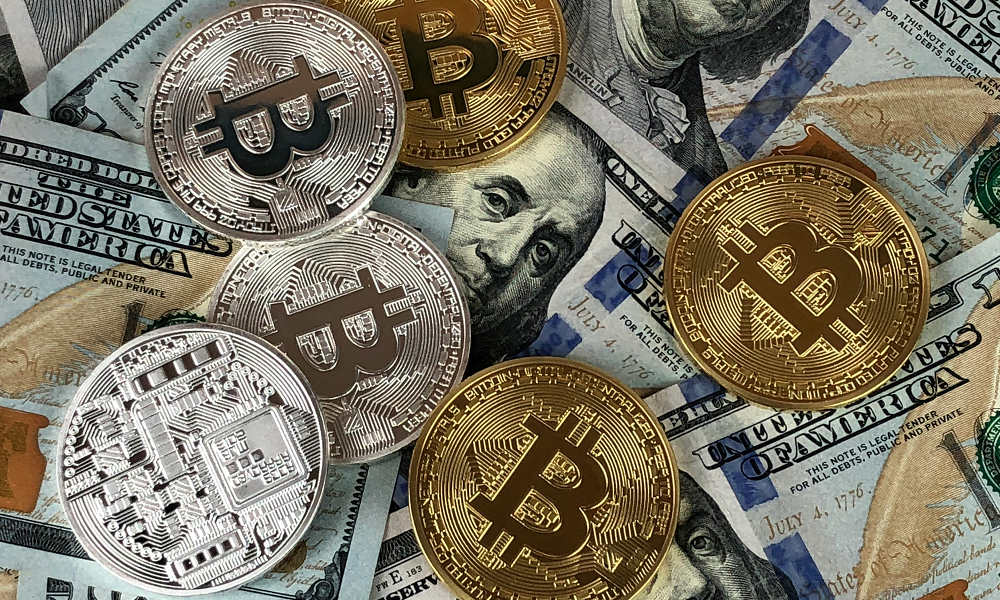Reviews
Why Cryptocurrencies Are Gaining Ground in the US Economy

More individual Americans are using cryptocurrencies today than ever before, and institutions are increasingly valuing them as investment assets. Previously considered a fringe financial concept, digital currencies such as Bitcoin are now integrated into various aspects of the American financial system.
In this article, we’ll explore the momentum behind cryptocurrency in the US, discussing its long-term potential for innovation and diversification.
A New Investment Class
Many Americans now view cryptocurrencies, especially Bitcoin, as legitimate investment assets. Investors are considering digital assets as a means of portfolio diversification amid the global financial uncertainty of recent years.
Bitcoin, due to its capped supply of 21 million coins and a decentralized network, is perceived as “digital gold.” Investors are drawn to its role as a store of value operating independently of central banks and fiat currency policies. This perception has gained further traction as traditional investment vehicles, such as spot Bitcoin Exchange Traded Products (ETPs), became available in the US in 2024.
A Guard Against Inflation
Unlike fiat currencies, which are printed in response to economic crises or policy decisions, Bitcoin is governed by algorithmic scarcity. This limited supply appeals to investors who fear that unchecked monetary expansion will erode the value of traditional holdings.
Bitcoin’s fixed supply and decentralized infrastructure make it an appealing inflation hedge and
safe-haven asset, especially during periods of economic instability. It’s also notably stable in the volatile cryptocurrency market.
Tech Innovation Beyond Crypto
The underlying blockchain technology that enables cryptocurrencies is serving as a means for economic growth and innovation. Blockchain offers practical applications in improving supply chain transparency and digital identity management in the US.
For example, smart contracts, self-executing agreements written into code, are being developed for use in the real estate and logistics sectors. The public and private sectors are investing in these advancements, stimulating technological development nationwide.
More Ways to Pay
Large and small businesses now accept cryptocurrency payments, offering consumers greater flexibility and control over their transactions. AT&T, PayPal, Apple, and Microsoft are among the major companies that have adopted digital payments.
The physical infrastructure supporting cryptocurrency adoption, such as Bitcoin ATM networks, is facilitating this shift. These machines enable users to seamlessly convert cash to cryptocurrency and vice versa, much like traditional ATMs with bank balances.
Clearer Rules, Broader Acceptance
Federal guidelines and state-specific laws are boosting investors’ confidence in the cryptocurrency market. Agencies such as the SEC and CFTC have begun tightening the classification and oversight of digital assets, reducing uncertainty for investors and businesses.
Recent legislation and guidance on cryptocurrency taxation and the approval of regulated products, such as spot Bitcoin ETFs, have made it easier for institutions to participate securely. These developments encourage responsible innovation and pave the way for broader adoption, helping integrate crypto into the traditional financial system.

-

 World1 week ago
World1 week agoEthiopian volcano erupts for first time in thousands of years
-

 Health2 days ago
Health2 days ago8 kittens die of H5N1 bird flu in the Netherlands
-

 Legal7 days ago
Legal7 days agoUtah Amber Alert: Jessika Francisco abducted by sex offender in Ogden
-

 US News6 days ago
US News6 days agoExplosion destroys home in Oakland, Maine; at least 1 injured
-

 Health7 days ago
Health7 days agoMexico’s September human bird flu case confirmed as H5N2
-

 Legal3 days ago
Legal3 days ago15 people shot, 4 killed, at birthday party in Stockton, California
-

 World7 days ago
World7 days agoWoman killed, man seriously injured in shark attack on Australia’s NSW coast
-

 Health6 days ago
Health6 days agoMarburg outbreak in Ethiopia rises to 12 cases and 8 deaths




